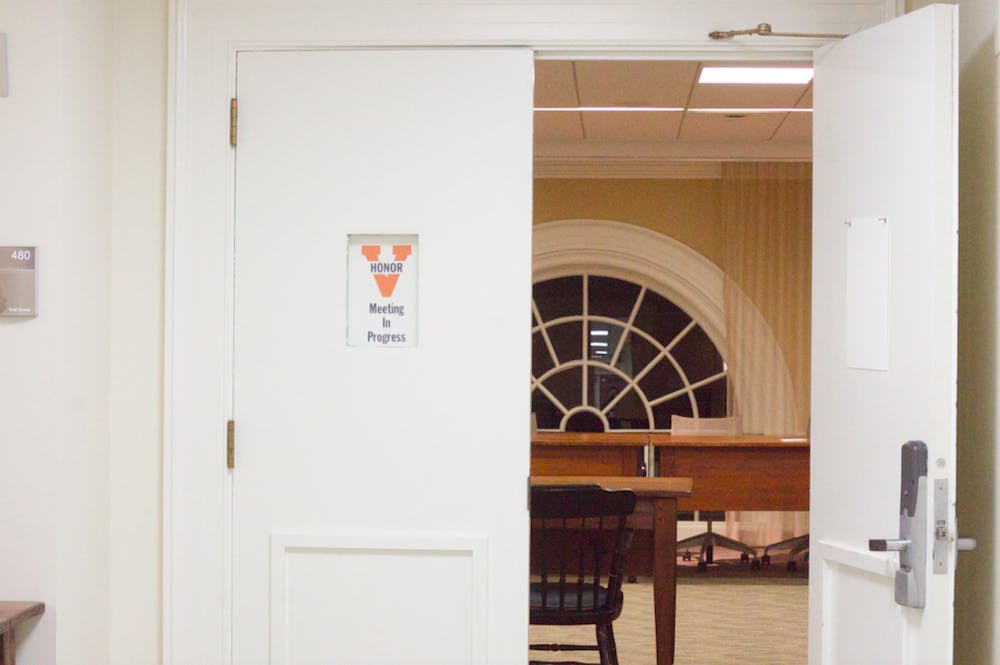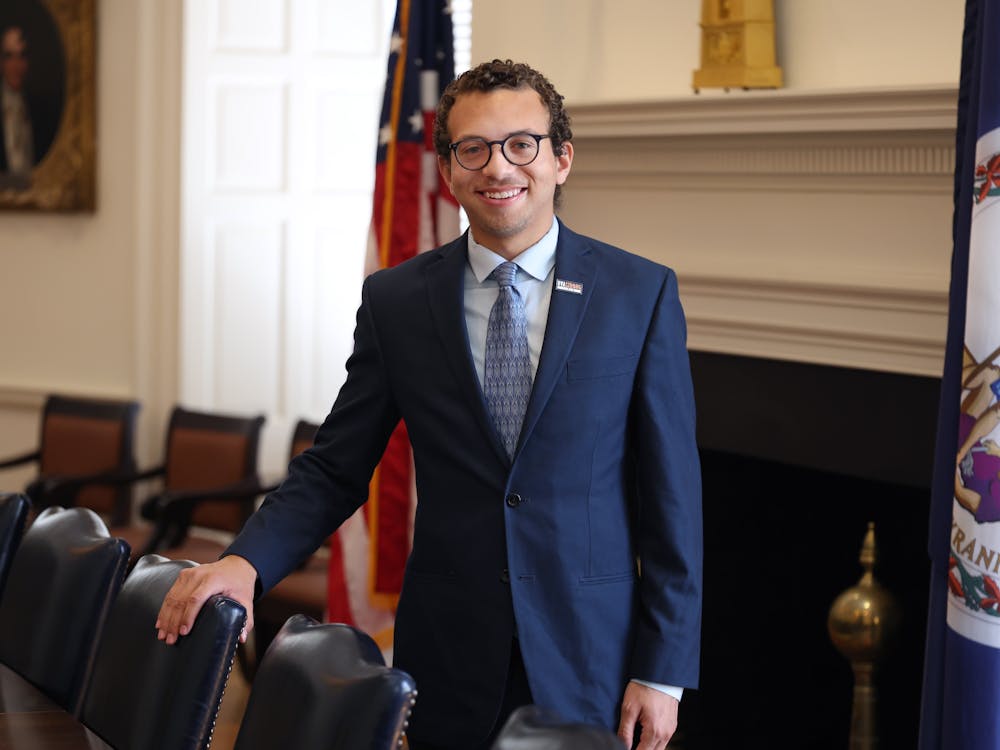Editor’s Note: The Cavalier Daily Editorial Board interviewed nine candidates for the position of Honor Committee representative. Each interview lasted approximately 15 minutes, and all candidates were asked the same baseline questions. The endorsements below are based solely on the content of these interviews.
This year, The Cavalier Daily Editorial Board endorses three candidates for the Honor Committee, each of whom are running for College of Arts & Sciences representative — third-year Seamus Oliver and second-years Henry Grieco and Jack Wallace. Over the past year, the Honor Committee has experienced challenges including a protracted processing timeline of 79 days and has struggled with the proportionality of sanctioning. These candidates displayed a clear commitment to actively ameliorating these challenges. Moreover, they demonstrated a wholly restorative and inclusive vision for the Committee, one which focused on transparency, faculty engagement and student accessibility. In short, we are confident that these candidates’ multidimensional approach to stakeholders will boost community buy-in writ large.
Oliver, the current Vice Chair for Investigations, has firmly established himself as an astute policymaker and dedicated steward of the Community of Trust. His radical focus on faculty outreach, as well as his desire to have difficult conversations with organizations historically antagonized by the Committee, represent the exact steps the Committee must take to restore its community buy-in. Furthermore, he transparently shared with us a plan to reform the Investigations process and implement multiple by-laws that could lessen the pressure upon Honor and community members while also decreasing the Committee’s mounting case processing time. Oliver’s thoughtful proposals — and more importantly, his willingness to share them — embody the transparency that student self-governance thrives upon. While changing the process around the Committee is difficult, it is also necessary, and Oliver demonstrated the competence and institutional knowledge which will make these changes relevant and lasting.
Grieco currently serves as a Senior Counsel and has tangibly exercised his resolute belief in the restorative power of Honor through his work on the Sanctioning Working Group. This group works to remedy the sanctioning gap — the substantial split between severe measures such as suspension and methods like a Restorative Ethics Seminar. Grieco’s efforts to find solutions for this issue is indicative of his desire to increase student buy-in to Honor by cognizantly developing restorative measures proportional to a variety of infractions. Grieco also acutely recognized the importance of faculty as another important stakeholder with which the Committee must engage, one whose participation in the Honor process is simultaneously critical to cases and inhibited by case processing time. Additionally, Grieco acknowledged the failings of the Honor Committee in years past, specifically as it relates to soliciting the trust of minority groups on Grounds. Grieco is a candidate who has reflected on the limitations of the past system to understand how to improve its presentation to stakeholders going forward.
Wallace is also an active member of the Sanctions Working Group, as well as the Data and Research Subcommittee. In the former group, Wallace exhibited an acute awareness of the sanctioning gap and further demonstrated his commitment to proportionality by acknowledging how the increase in the severity of an infraction all too often leads to a less specific sanction for the student. Thus, he advocated for more tailored responses to Honor violations irrespective of severity. Wallace also understood that a humanization of the Committee was necessary in order to truly ensure buy-in from the community. He recognized the need to both further meet with members of the community and better educate them as to the Honor process in order to clarify the Committee as a body for, rather than against, its stakeholders. Empowering the Committee’s relation to its community, Wallace displays the kind of intentional thinking that will protect the multi-sanction system in these coming years.
Last year, the previous Editorial Board feared that, following the momentous advent of multi-sanction, Honor had become complacent, uncreative and ahistorical. Oliver, Grieco and Wallace have assuaged these concerns in a fundamentally sound way. Each candidate has looked to the past to gain a comprehensive understanding of the Honor system and has also exhibited forward-thinking solutions to the Committee’s present challenges. In doing so, these candidates have developed strategic pathways for turning a once-exclusionary body into a platform accessible to all stakeholders. For all of these reasons, we believe that these three candidates will promote a restorative and transparent Honor Committee.
The Cavalier Daily Editorial Board is composed of the Executive Editor, the Editor-in-Chief, the two Opinion Editors, the two Senior Associates and an Opinion Columnist. The board can be reached at eb@cavalierdaily.com.







